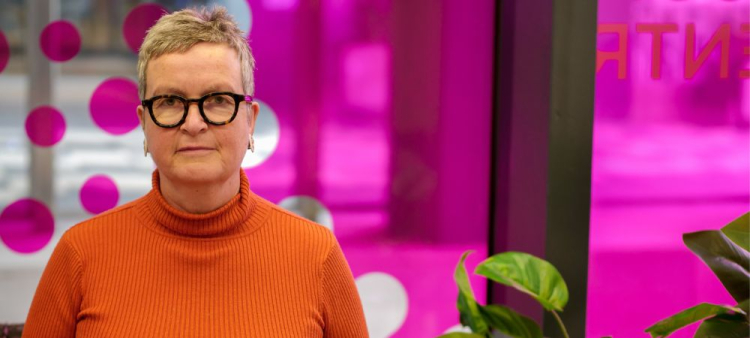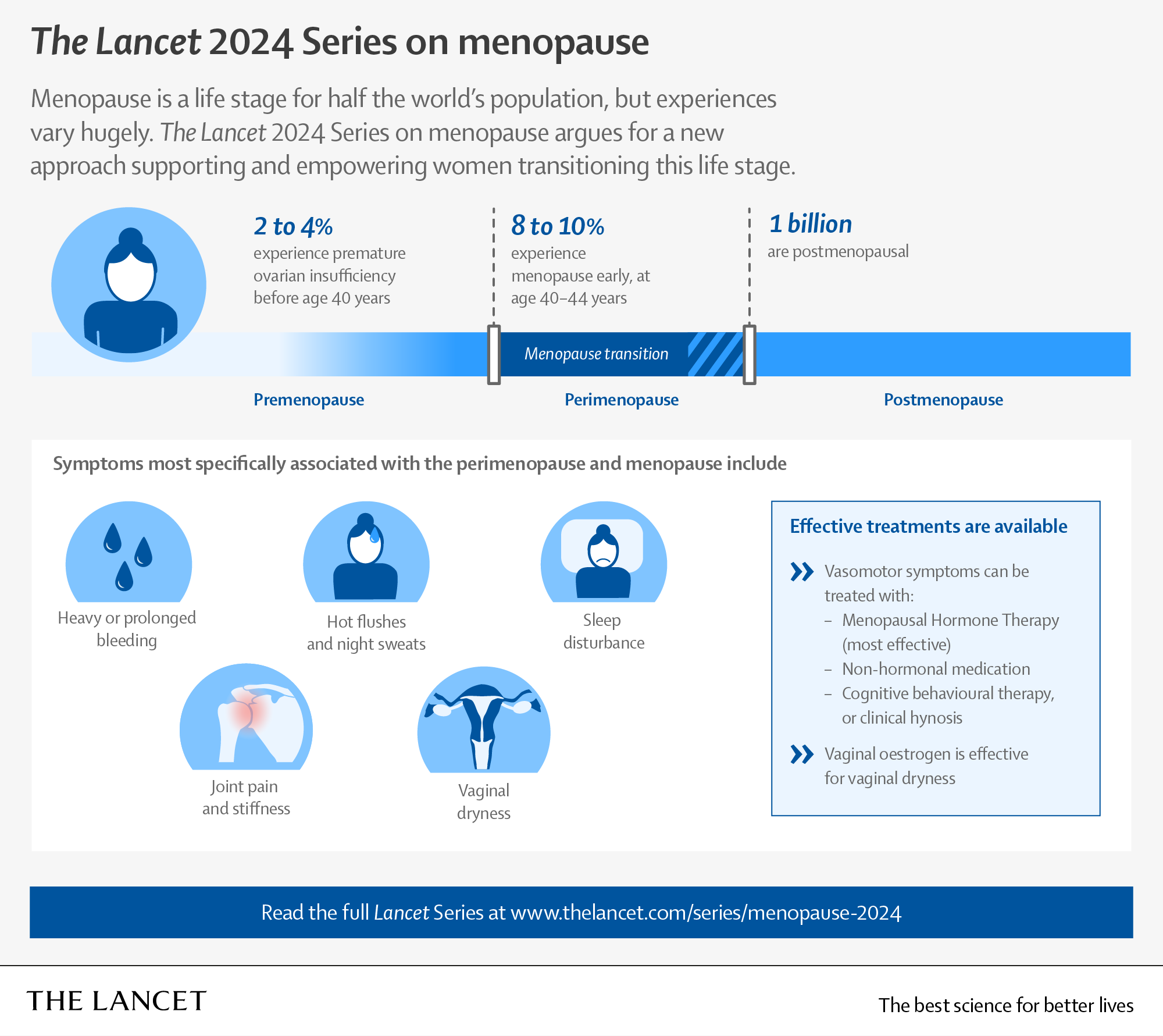
Menopause is more than a hormone-deficiency disease, say a group of international researchers in a first-ever series on menopause published in The Lancet today.
Led by the Women’s Head of Menopause Services, Professor Martha Hickey, the experts are calling for a change in our society so we can better prepare, support and empower women as they move through midlife and experience menopause.
Prof Hickey and her international colleagues argue that by talking about menopause as part of healthy ageing, we reduce stigma and overmedicalisation.
They say women can be empowered to navigate this life stage if they have the acknowledgement and support of health professionals, researchers, their workplaces, and society as a whole.
“The misconception that menopause is always a medical issue that signals a decline in a woman’s physical and mental health should be challenged across the whole of society,” Prof Hickey says.
“Changing the narrative to view menopause as part of healthy ageing may help more women to navigate this life stage and reduce fear and trepidation amongst those who have yet to experience it.”
Prof Hickey highlights that the experience of menopause differs for every person. Consequently, an individualised approach is needed.
“Women need accurate, consistent and impartial information to make informed decisions that are right for them over the menopause transition,” she says.
“Symptoms such as hot flushes and night sweats can range from mild to extremely debilitating.
“Menopausal hormone therapy may be right for some women, after they’ve had discussion with their doctor about the risks and benefits.
Alternatively, some women may choose psychological therapies, such as cognitive behavioural therapy, to reduce the psychological impact of hot flushes and night sweats and improve sleep.

Some women need special support
For the first time, a world-leading medical journal has dedicated a four-paper series to address the menopause transition.
While the international authors call for a normalisation of this life stage for half the world’s population, they also stress that some people have been overlooked in receiving specific care.
Globally, around 10 per cent of women experience menopause prematurely (under age 40) or early (between the ages of 40 and 44). There are often delays in diagnosis and some women experience feelings of distress and isolation.
Another group of women requiring specific care is those with cancer. They are more likely to experience early menopause or menopause symptoms. They also report a lack of centralised care and access to safe and effective treatments for their menopause symptoms.
Menopause does not usually cause mental health problems, but those with severe hot flushes/night sweats, previous clinical depression or recent stressful life events are at an increased risk of depression.
Prof Hickey and her colleagues advocate for greater awareness and support for this group.
They also say that while menopausal hormone treatment can help with hot flushes and night sweats, it is not a treatment for depression and clinicians should offer evidence-based treatments depending on severity and patient preference.
“It’s time for menopause to be recognised as a nuanced, complex life stage which, with the right support, access to treatments and societal attitudes, needn't be experienced negatively,” Prof Hickey says.
Read: the full Lancet series.
A note about language and inclusivity:
Menopause happens to all people with functioning female gonads at some point who do not take cross gender hormones. This includes most individuals assigned female at birth, even if their gender identity does not align with that assignment. We use the terms 'women' and ‘women's health' to encompass all these individuals.